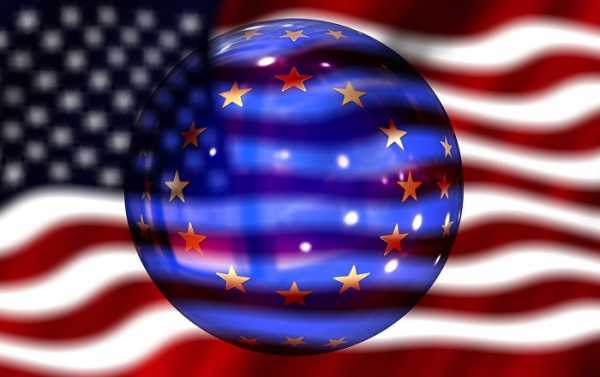
EU Trade Commissioner Phil Hogan noted that the WTO is soon going to issue arbitration on a “parallel case” of the European Union against the United States regarding “certain unlawful subsidies to Boeing”.
Aircraft manufacturing giant Airbus announced that it is now in compliance with World Trade Organisation (WTO) rulings following a lengthy legal row regarding aircraft subsidies. The European Commission said that this essentially “removes any grounds for the U.S. to maintain its countermeasures on EU exports”, according to a statement posted on the its official website.
With Airbus agreeing to pay higher interest rates on the loans it received to develop its A350 jet, the European Union apparently believes that this should settle the WTO row with the United States, and hints at the prospects of imposing retaliatory sanctions against the US should this not be the case.
He also warned that “in the absence of a settlement, the EU will be ready to fully avail itself of its own sanction rights”.
Wider Agreement on the Horizon?
Michael R. Englund, Principal Director and Chief Economist for Action Economics, LLC, however, said he suspects that the lengthy dispute between Boeing and Airbus is unlikely to end with “this last action” by the latter, pointing out that “earlier this year, Boeing repealed an aerospace tax break that benefited Boeing, hence averting EU tariffs on US goods”.
He added that with the apparent US merchandise trade deficit with the EU, the European Union “has much more to lose than the US from diminished trade between the countries if there is a tariff ‘tit for tat’, and the administration is likely to try to use this leverage”.
Captain Desmond Ross, an experienced aviation industry specialist, also noted that, “with sales in many nations and parts manufactured in many countries then shipped and assembled at the main factories”, the major manufacturers are “international in all respects”, so “it is a very complex pricing structure for a multi million dollar aircraft and unilateral action by the US to impose tariffs will affect all operators in all countries where the aircraft operate”.
Craig Holman, Ph.D, Government affairs lobbyist for Public Citizen, suggested that US President Donald Trump is likely going to “deal with this tariff dispute in his usual fashion” – namely, acting “bellicose in his defense of American interests” and “publicly threatening the EU with ‘massive’ retaliatory sanctions if Europe imposes new tariffs on American products”.
And Daniele Archibugi, Research Director at the Italian National Research Council in Rome and Professor of Innovation, Governance and Public Policy in the Department of Management at Birkbeck, University of London, argued that aircraft manufacturers in the United States have “greatly benefited from various forms of state aid since the end of the Second World War”.
Subsidies of Discord
The WTO dispute in question began in mid-2000s, with the United States accusing Airbus of receiving illegal subsidies, and the EU later making a similar claim regarding Boeing.
In 2019, the WTO ruled that the EU had provided billions of dollars’ worth of illegal subsidies to Airbus, hurting US rival Boeing and concluded that the United States can impose tariffs on $7.5 billion worth of goods from the European Union in retaliation.
Last month, US Trade Representatives announced that Washington was considering imposing new tariffs on $3.1 billion in exports from several European countries as part of the aforementioned aircraft subsidy dispute, with the list of items that may be hit with up to 100 percent tariffs including chocolate, olives, cheese, beer, aircraft, machinery, and other goods.
Commenting on the development, a European Commission spokesperson warned that a new batch of US sanctions on EU goods would deal a “huge” blow to both sides of the Atlantic.
Sourse: sputniknews.com






